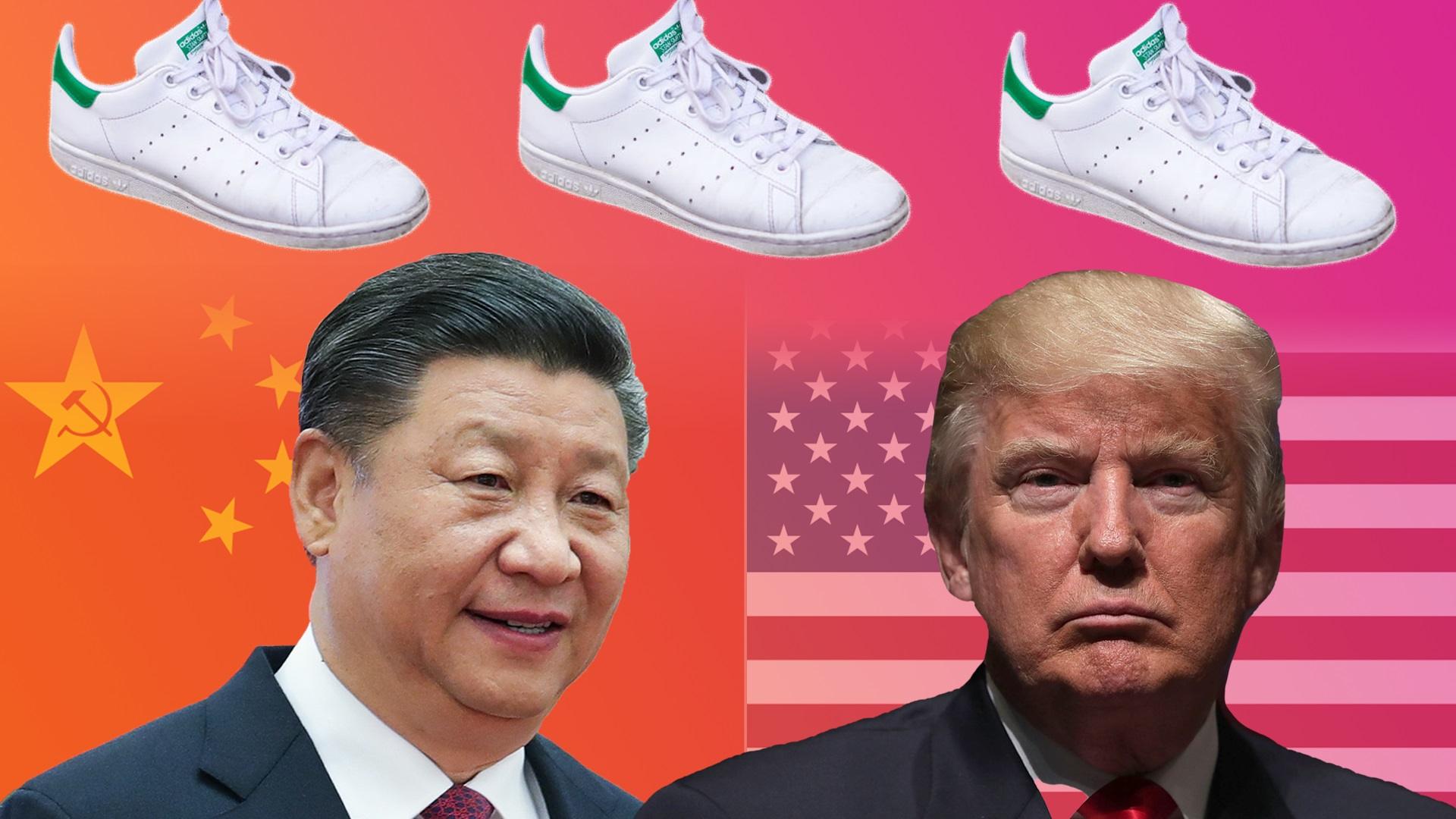Why is everyone talking about Taiwan?
- Published
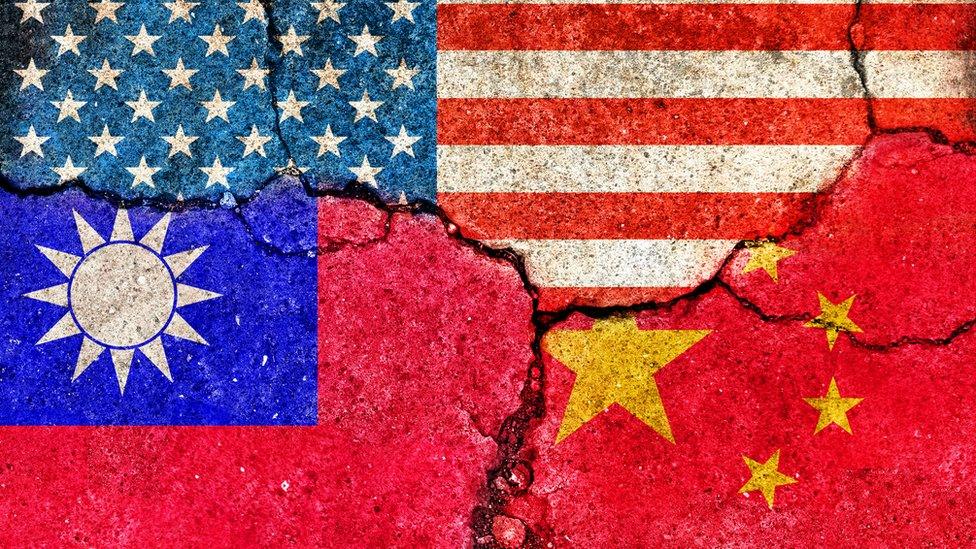
You may have seen that there is lots of talk about China and the United States in the news at the moment.
The relationship between the two countries is not the friendliest, even at the best of times.
But that relationship has taken a turn for the worse in recent days, after an important politician from the United States made a visit to the island of Taiwan.
This visit has been seen by China and its supporters as a very bad move, and many of the US's friends and allies are nervous about what it could mean.
But why would a US politician's visit to the country of Taiwan cause so many issues?
Read on to find out more.
Why is everyone talking about Taiwan?
Taiwan is an island around 100 miles off the coast of mainland China.
It is home to more than 24 million people, with 2.7 million people living in its capital city, Taipei.
Most people in Taiwan speak Mandarin - an official Chinese language.
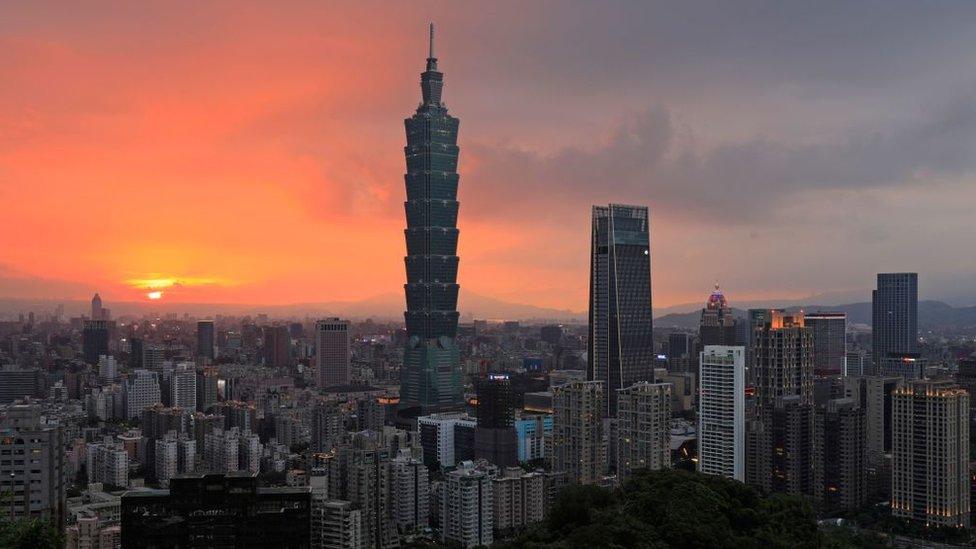
Taipei is the capital city of Taiwan
The country makes around 65% of the world's computer chips - which is a big deal!
Computer chips are used in all sorts of technology from gaming consoles to smartphones to satellites - so lots of manufacturers around the world rely on Taiwan and the technology it makes.
But Taiwan's identity is a very controversial issue.
China sees Taiwan as a breakaway province that will eventually be under its control again.
But self-ruled Taiwan sees itself as distinct from China, with its own constitution and democratically-elected leaders.
What is the history of Taiwan?
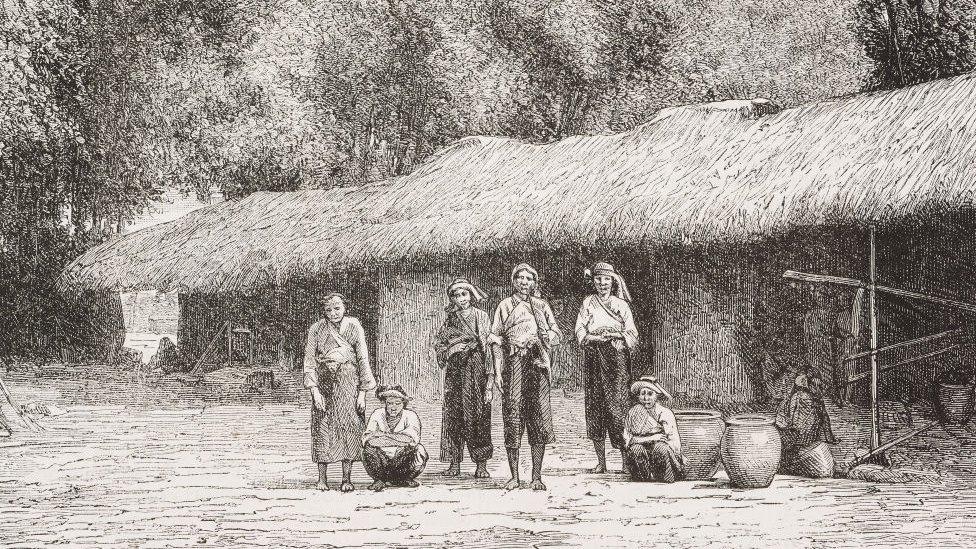
A drawing of Taiwanese people from 1876
Taiwan was a self-run island until it was colonised by the Netherlands in the mid-1600s. It regained its independence 40 years later, but by the late 1700s, Imperial China had taken control.
Late 1700s Imperial China controls the island of Taiwan.
1895 After China loses a war with Japan, the island falls under the Japanese Empire's rule.
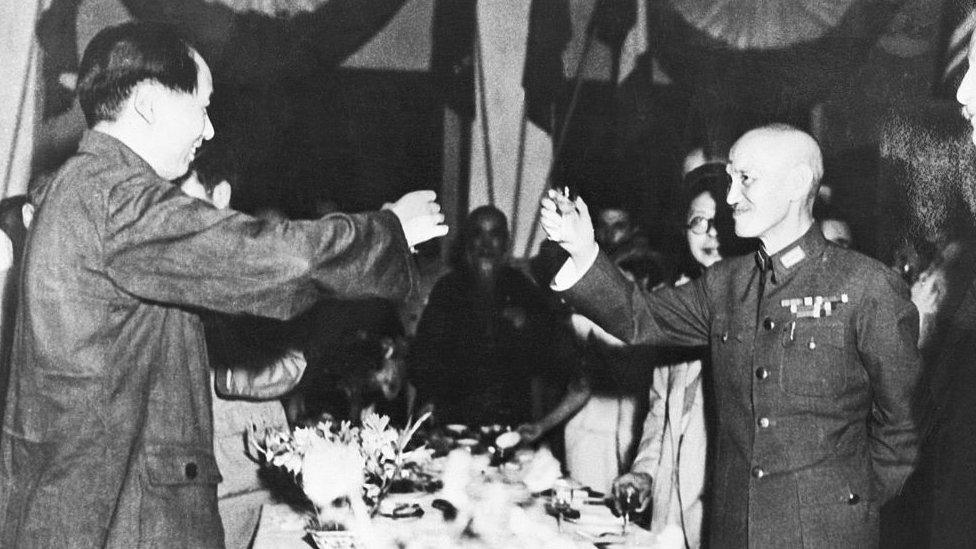
After the Second World War, a civil war broke out in China with one side led by Mao Zedong (left) and the other side led by Chiang Kai Shek (right)
1945 Japan, an ally of Germany during the Second World War, is the last country to surrender in 1945. After their surrender, they return control of Taiwan to China. A civil war breaks out in China. The main conflict is between two sides. One is the Communist Party, led by Mao Zedong. The other side are the Nationalists, or Kuomintang, led by Chiang-Kai Shek.
1949 Mao Zedong and the Communist Party win the civil war. They found the People's Republic of China, or the PRC for short. Chiang-Kai Shek and his supporters retreat to Taiwan and declare the island of Taiwan to be the Republic of China, or the ROC for short. Both governments claim to be the 'true' representatives of China.
What is the One China policy?
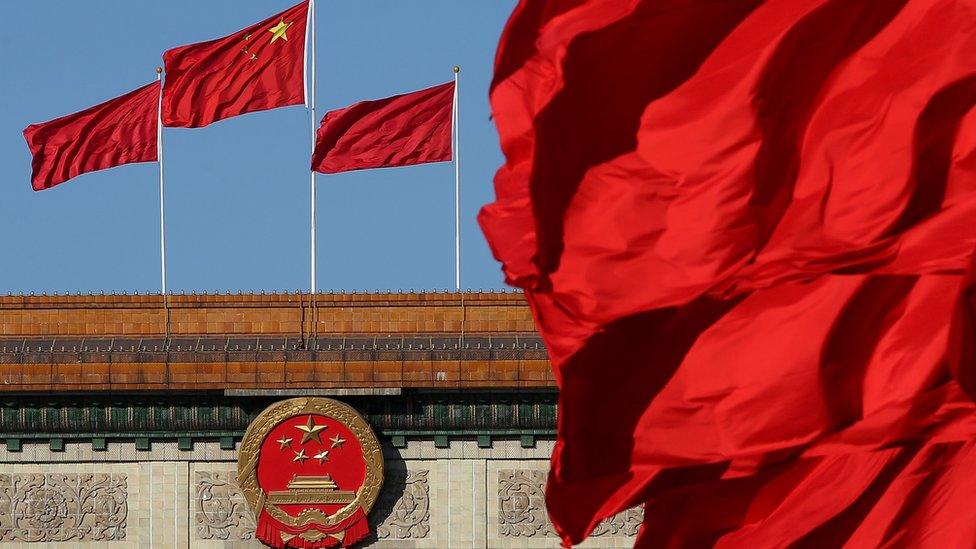
Under the One China policy, the US recognises and has formal ties with China rather than the island of Taiwan.
As mentioned, China sees Taiwan as a breakaway province to be reunified with the mainland one day.
What is Taiwan's relationship with China today?
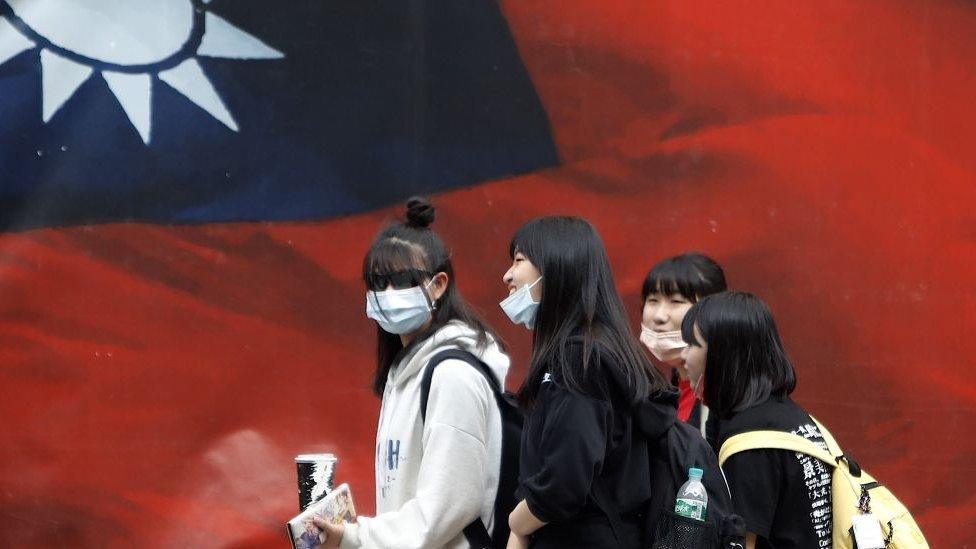
Young people in Taiwan often identify as being Taiwanese instead of Chinese
Last year, a study from Taiwan's National Chengchi University found that more than 60% of people now identify as Taiwanese, compared to less than 20% in 1992.
Just over 30% identify as both Chinese and Taiwanese.
And more recently, lots of Taiwanese people have been upset by China's recent moves to gain more control over Hong Kong.
Why is the United States interested in Taiwan?
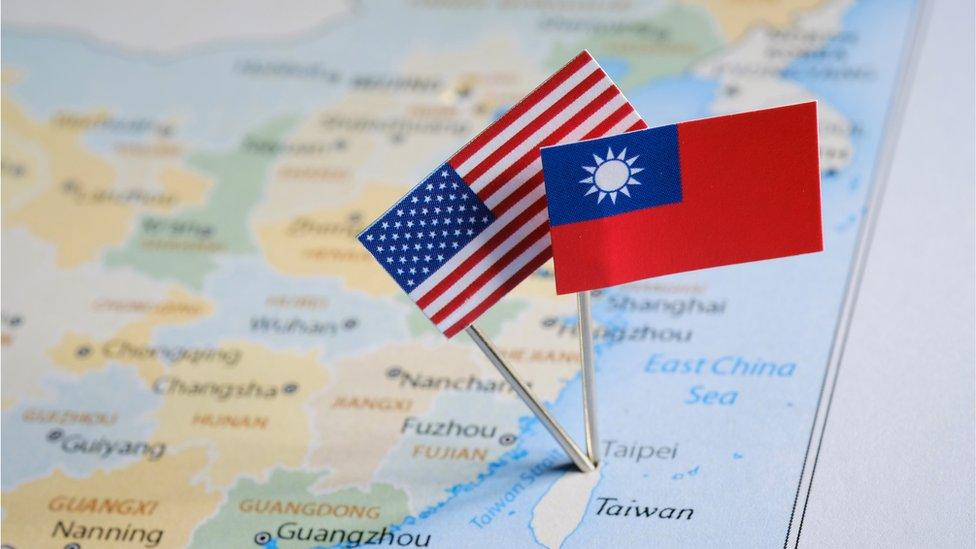
The United States is very interested in Taiwan. Here are some of the reasons why:
Taiwan and the US have similar political systems - both are democracies, whereas China is seen by many to be an autocracy
Taiwan has a massive influence over technology internationally, as they make 65% of the world's computer chips - and trading with Taiwan could be harder under China's rule
Taiwan is geographically close to other countries that the US is friendly with - in particular Japan - Japan would also like to limit China's influence over Taiwan
The US is worried that the Chinese government would be better able to launch attacks on US territory and on the US's allies if China took control over Taiwan
A democracy is a type of government. Leaders are chosen through elections. In a true democracy, every citizen of that country or nation gets the chance to vote in an election.
An autocracy is another type of government. One leader who has total power over their government. That leader or their government are not voted for by the citizens of that country or nation.
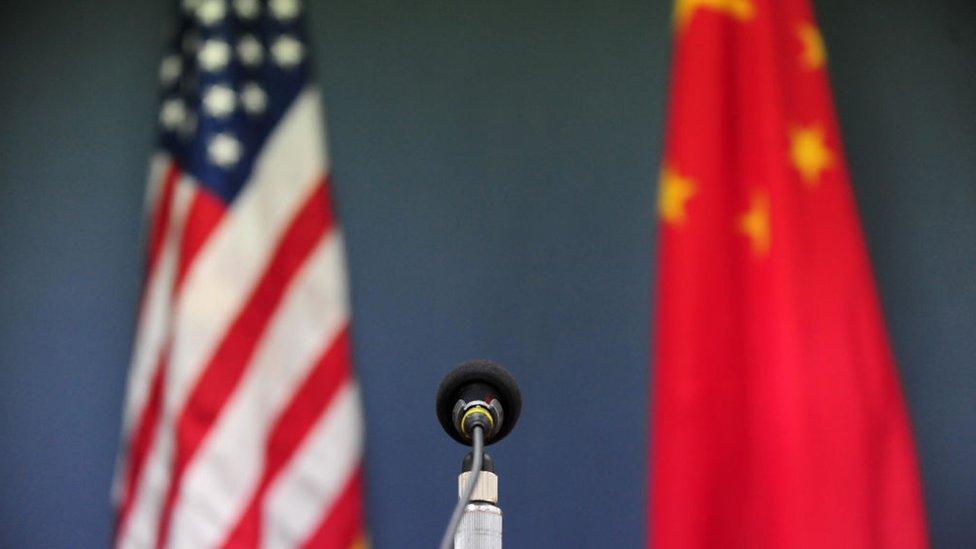
China and the United States have a tense relationship
Despite their support for the Taiwanese government, the United States has never publicly said that Taiwan is an independent country from China.
This is because a public acknowledgement of Taiwan as an independent country could damage their relationship with China further and possibly lead to war.
But in recent years the United States have been building stronger ties with Taiwan, which has really upset the Chinese government.
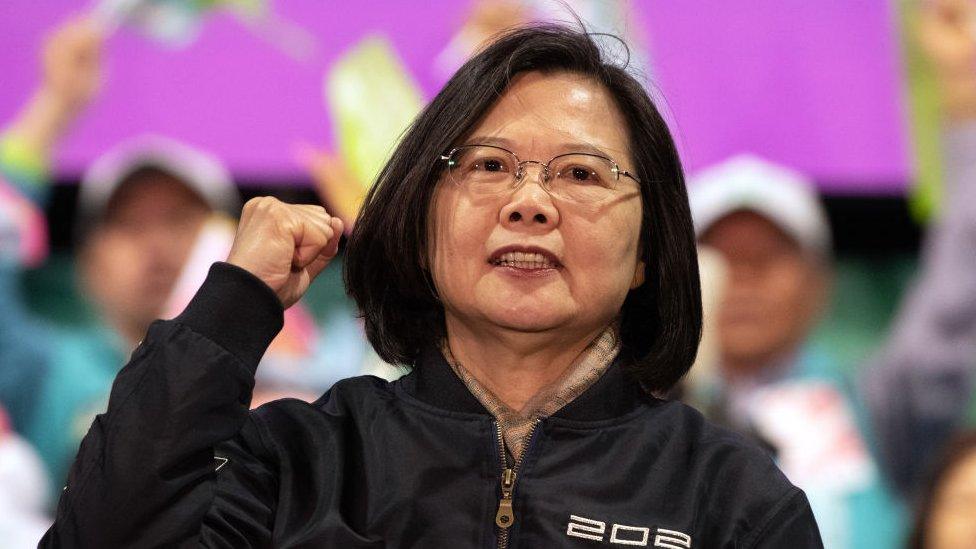
Taiwanese President Tsai Ing-Wen has encouraged Taiwan's relationship the United States while criticising China's recent actions in Hong Kong
In 2016, President Trump had a phone call with the President of Taiwan Tsai Ing-Wen - the first time a US President had accepted a call with a Taiwanese leader since 1979.
And in 2022, President Biden has said that the US would defend Taiwan from a Chinese invasion.
The Taiwanese government appears to want to have a good relationship with the United States, even if it puts its relationship with China at risk.
What is happening right now?
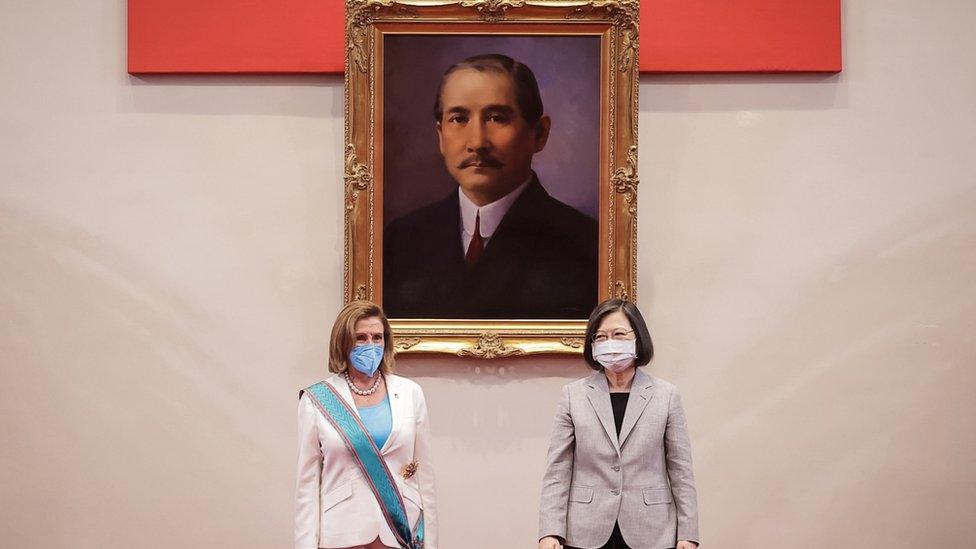
The US politician Nancy Pelosi's visit to Taiwan has made the Chinese government very angry
A senior US politician called Nancy Pelosi has made a trip to visit Taiwan.
This has upset China greatly.
In response, China has begun six military exercises in areas surrounding Taiwan.
Three of those exercises actually enter Taiwan's territory.
Taiwan has strongly criticised China's exercises, saying they are a blockade.
Taiwan's government have also asked for companies on the island to prepare for cyber-attacks from China.
What could happen next?
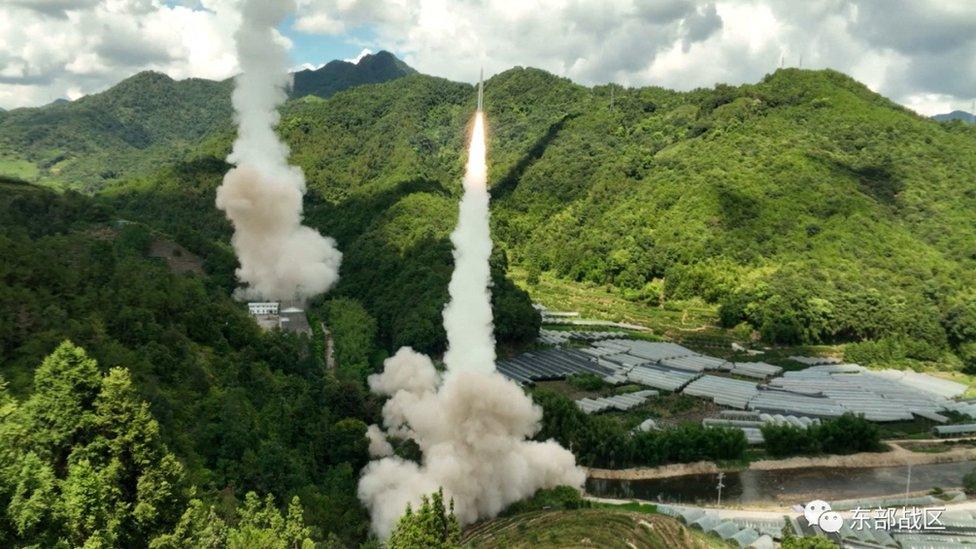
The Chinese government has fired eleven missiles into the waters near Taiwan on Thursday
As Nancy Pelosi's visit to Taiwan has now ended, but China is still very angry about it.
On Thursday, as part of a military exercise, China fired 11 missiles into the waters surrounding Taiwan.
This was meant as a warning and no one was hurt by the exercise.
But China is sending a message to Taiwan's government that they are unhappy.
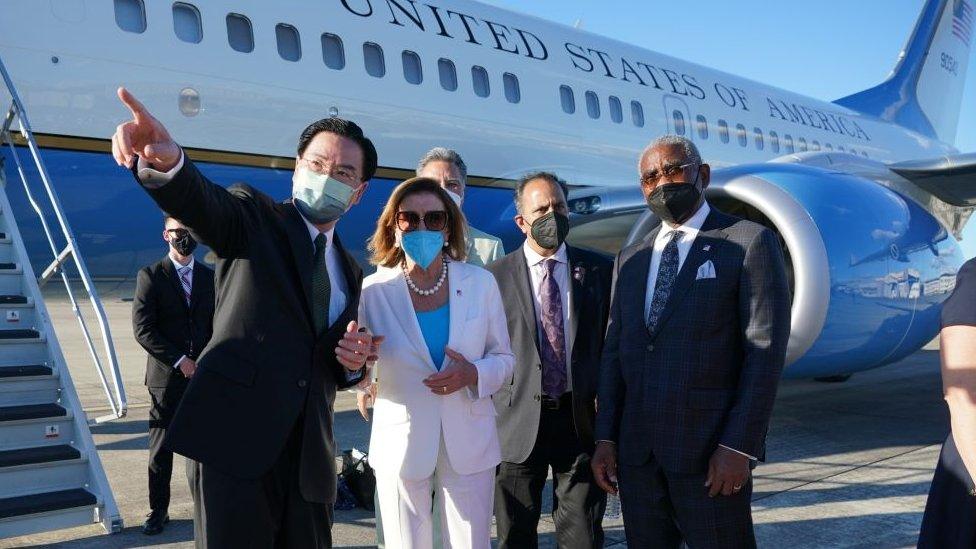
Nancy Pelosi said she wanted to "celebrate" Taiwan
Since leaving the island, Nancy Pelosi has said that she wants peace for Taiwan.
But some people have accused Nancy Pelosi of visiting Taiwan for selfish reasons.
She responded to this criticism, saying: "This isn't about me, this is about Taiwan. This is about saying 'let us celebrate Taiwan'."
We'll bring your more on this story as it happens.
- Published3 November 2021
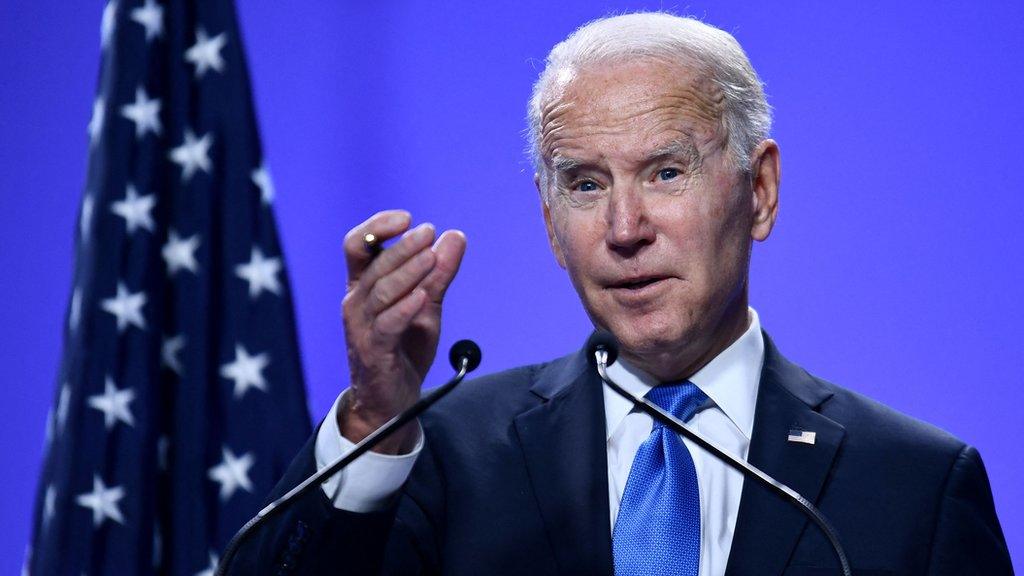
- Published24 August 2020
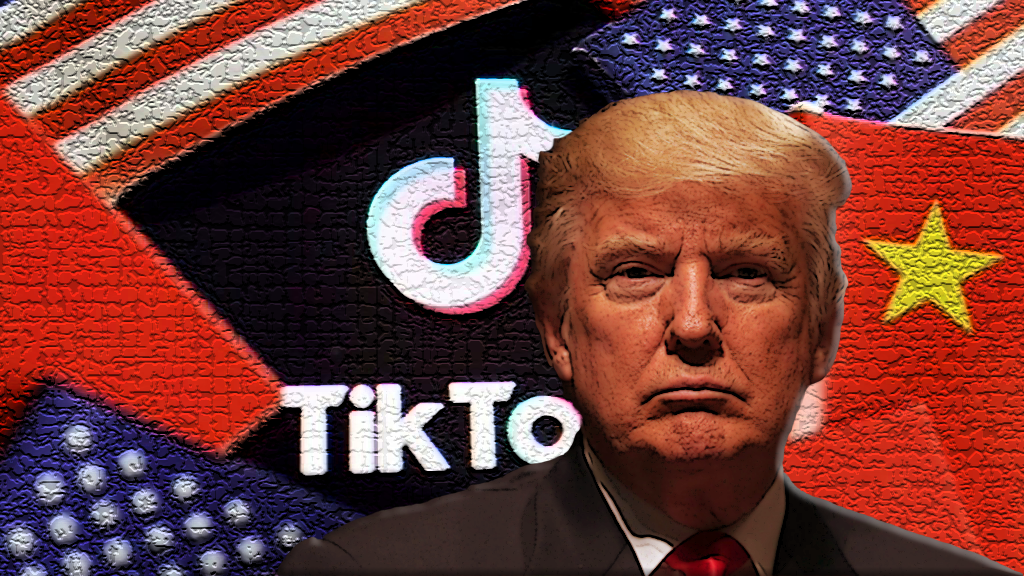
- Published8 June 2021
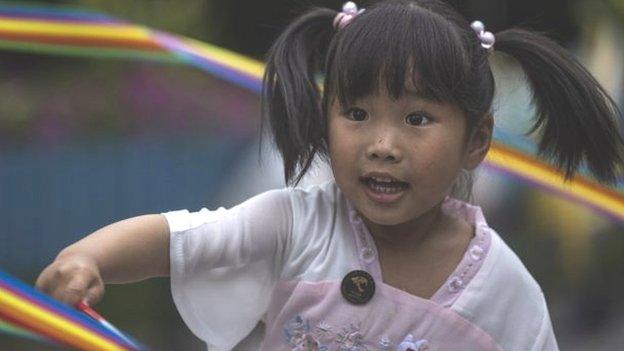
- Published22 May 2019
